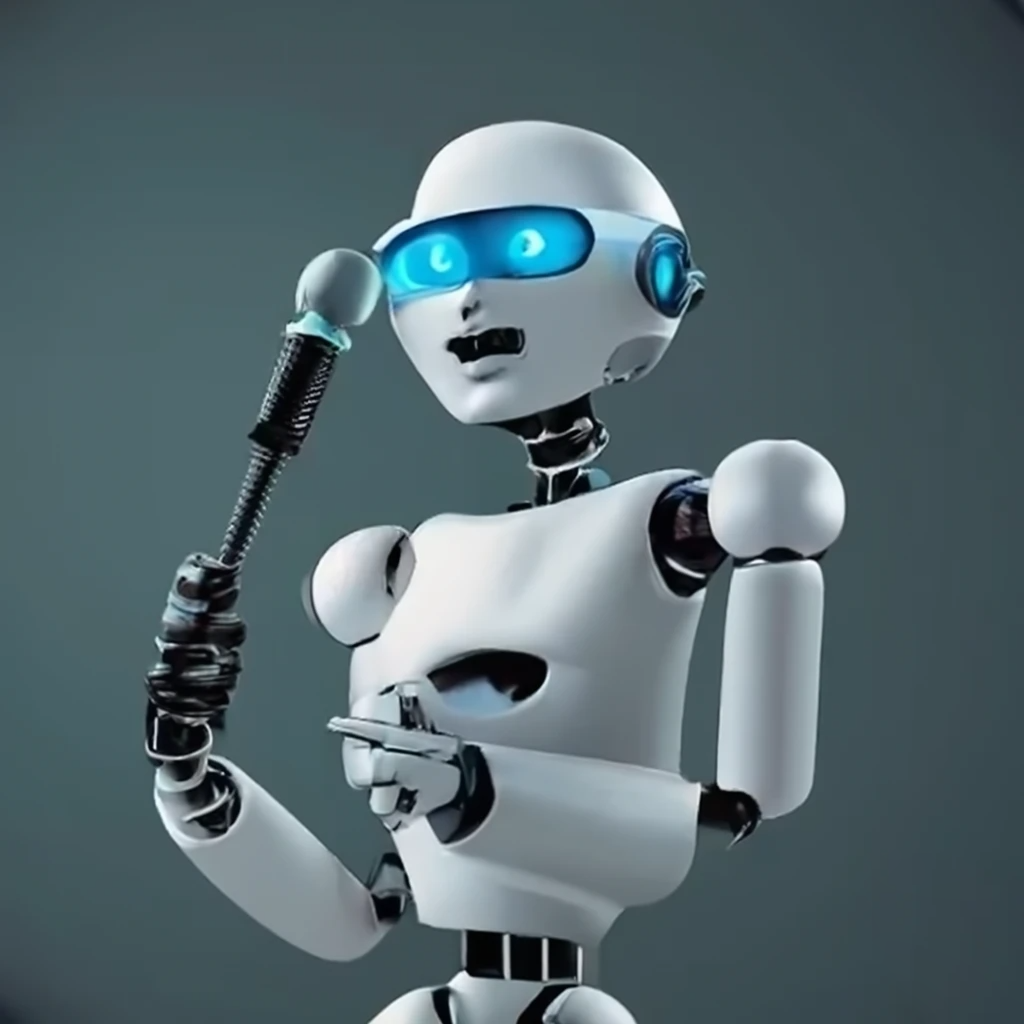
Over the course of the past year, the abilities of artificial intelligence have jumped past what we once thought possible. And those possibilities have sparked passionate debate over copyright, workers’ rights, and the role of art in our society.
This past summer we saw a historic Hollywood writers’ / actors’ strike with AI at the center of the unions’ concerns. Arguing points surrounded a debate over whether it was ethical to replace writers and graphic designers with AI or to even replace actors with AI representations of themselves. Even voice actors like Stephen Fry have found their auditory likeness replicated without consent.
This is not a new debate though. A few years before the pandemic, a group of famous dance creators filed a class-action lawsuit against the creators of the video game Fortnite, because they claimed it stole and monetized dances that they created. Accusers included Alfonso Ribeiro aka Carlton from “The Fresh Prince,” and that backpack kid that first did “The Floss.” Before that, Elliot Page vocally criticized the videogame The Last of Us for stealing his likeness for the character Ellie.
And running parallel all along – but never quite garnering the same level of public interest – was the issue of joke theft.
Joke theft is probably the greatest crime any comedian can commit – even worse than not being funny. In a world where comedians have been accused of almost every crime imaginable, nothing so efficiently scrubs a comedian’s name right off the history books quite like being caught stealing jokes.
In the early 2000s, Carlos Mencia was one of the biggest stand-up comics in the world. He had a TV show that rivaled Chappelle’s Show in popularity. He was selling out tour dates across the country, and even had his own restaurant chain.
But sometime between 2009 and 2010, Mencia’s popularity began to plummet due to accusations of joke theft. Famous podcasters like Joe Rogan and Marc Maron called out Mencia for pathologically stealing jokes from other comics – sometimes big names like Bill Cosby and George Lopez and sometimes from the people who opened for him at clubs. South Park even parodied him stealing a joke about gay fish.
What makes joke theft so serious in the comedy world is not unlike the 2018 lawsuit with backpack kid and Carlton. That lawsuit went nowhere, because, unfortunately for them, copyright law only protects longer works — like complete works of fiction or whole songs. It does not protect something as simple as swinging your hips back and forth or a chord progression.
Jokes, similarly, cannot be copyrighted. And frankly, most comedians are not in a financial position to do anything about it even if they could. Stealing jokes is incredibly easy to do. You can write a song in your spare room on GarageBand, but jokes must be worked out in front of a crowd (and other comedians) hundreds, if not thousands, of times before anyone sees it on a Netflix special.
But joke theft can completely destroy a comedian’s career. And so a culture of self-policing arose to combat it.
Enter, artificial intelligence.
This past November, authors like George R.R. Martin, John Grisham, and Jodi Picoult have filed lawsuits against ChatGPT creators OpenAI for copyright infringement. The Authors Guild claims that the technology relies on stolen work to generate its content. Not unlike joke theft.
Where the law has no jurisdiction, comedians have created a culture of self-policing to protect the art form they love. But what happens when some enterprising new tech start-up seeks to disrupt a field they have no love for and pay no fealty to? Who polices AI and its technocratic creators?
Technological advances will always affect the workforce. Moveable type made scribes obsolete. Advances in photography and printing made illustrators redundant. And computers put paper companies out of business.
But why do we need computers to create art for us? Why would I want a robot that can play the violin? And why would I need ChatGPT to write jokes for me?
That said, I asked ChatGPT to write some jokes for me. Steven Wright is one of my favorite comedians, so I asked it to write me a Steven Wright joke. It replied, “I spilled spot remover on my dog. Now he’s gone.” Which is, word-for-word, a Steven Wright joke. And a pretty popular one too.
When I asked it to write a John Mulaney joke, it replied, “I recently got a smartwatch, you know, one of those devices that tracks your steps and constantly reminds you that you need to move. It’s like having a tiny, judgmental personal trainer on your wrist. I took it out of the box, put it on, and suddenly it’s like, ‘Hey, John, you’ve only taken 300 steps today. Are you training for a marathon or a nap?’”
Interestingly, this is a joke. It has a premise. And it has set-ups and punchlines. It even incorporates common John Mulaney vernacular – Mulaney often uses the filler phrase “you know.”
But after reviewing a plagiarism checker, I was able to discern that the line about a “judgmental personal trainer” was plagiarized from someone’s Medium blog. But even if the content were wholly original (and not stolen), a John Mulaney joke is more than some words on a page. It is his inflections, his silly gestures, and his ridiculous voice.
Comedy is more than a joke delivery system. It is the full ridiculous, embarrassing, hypocritical, ironic raw humanity that makes it funny. AI art has no purpose, because its creator has no purpose. It contributes nothing to discourse. It has no point of view. It is stolen art bereft of soul.